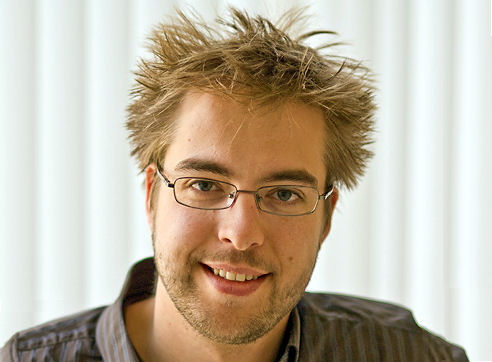Is the European Commission Helping or Hindering Tech Entrepreneurs?

Techweek Europe asks Drupal inventor Dries Buytaert about his platform, its strong European following and his view on venture capitalism in the European Union
Drupal is now an open source challenger to publishing software such as WordPress. How did it start, and did you ever expect it to get so big?
I started Drupal 11 years ago, just for fun while I was in college. It started out as a message board, working a few nights a week on updating and maintaining the project. This soon developed into a free tool for building customised Websites both quickly and easily. By the time I had finished my PhD, hundreds of companies were using the platform to support their online offerings. With open source at the heart of the Drupal platform it quickly gained interest from developers and a passionate active community grew to support the project.
Taking an open source project to the mainstream
![]() Why did it take off? What got Drupal over the hurdle from a shared project to something so widespread?
Why did it take off? What got Drupal over the hurdle from a shared project to something so widespread?
It was the power of the Drupal community itself, and the strength of the platform it helped create. Drupal can be downloaded by anybody for free and companies in the ecosystem mak money developing sites and providing training, services and support. As a result, you’ll see users of the technology also contributing back to it, creating an ever robust community with multiple updates and add-ons. By our estimates, the Drupal community is the largest open source project in the world from the perspective of the number of active contributors. Today, Drupal is used at all levels from tiny non-profits to the New York Stock Exchange. What helps to differentiate it from other systems is that it’s better poised to handle the complex requirements and the performance needs of large scale enterprise systems. Thousands of solutions created by the community of developers already exist for the needs of users. If not already created, the community often develops solutions quickly and easily around user’s needs. A radically different step compared to proprietary systems.
Has Drupal’s European origin helped so far? And will it help in future?
We are rapidly expanding in Europe both in terms of customers and operations and now have offices in England serving the entire EMEA region and recently opened another office in the Benelux, with France on the horizon as well. We’ve seen a huge rate of uptake across Europe within government organisations, media industries, marketing and publishing sectors. The Drupal community is extremely energetic and experienced in Europe, and in part we put this down to their affinity to the platform’s European heritage.
How does Acquia sit with the open source nature of Drupal? Is a VC-funded arm compatible with the original aims of the platform?
Acquia provides guidance, support and a rich set of innovative products for users of the Drupal platform. Subscribers to the Acquia Network have access to a huge collection of value-added tools, hosted in the cloud, which aid them in succeeding with Drupal. A few examples include real-time performance monitoring, enterprise search, a library of training videos, automated Website optimisation and mobile device enhancement. Since Drupal carries no license fees, Acquia makes money by helping clients be successful with Drupal. And part of that is 24×7 SLA [service level agreement]-backed support. Our support team is staffed with Drupal experts who fanatically support our customers and/or delivery partners with every phase of their Website build and maintenance. Importantly, this includes our partner ecosystem around the globe. There are thousands of Drupal developers and many are Acquia partners. All of these benefit from the Acquia contributions to the awareness and adoption of Drupal along with the significant technical contributions Acquia makes to Drupal.
What can the EU do for startups?
Is the European Union doing enough to support VC-funded initiatives such as Acquia? What more should it do? The recent proposal by the European Commission in December for a new law to standardise the legal status of venture capitalists across the EU, in effect making it easier for investors to raise funds across national borders is certainly a step in the right direction. Although a number of countries are wary of being stripped of their own powers to regulate this sector, I believe that for European start-ups to be able to spread their wings this new law will go a long way in creating a level playing field and fostering innovation and creative technology start-ups across Europe in an otherwise difficult time to get off the ground. Being an entrepreneur myself, I welcome any helpful initiatives that promote new companies and beneficial ideas.
What difference does an uncertain economic situation make to the prospects of an open source project, and a VC-funded commercial offshoot like Acquia?
With European countries facing record levels of social, political and economic change, shrinking expenses is now a top priority for both the public and private sectors. As such, fresh tactics need to be considered by IT decision makers, this includes embracing open source projects as reliable and more importantly cost efficient alternatives to traditional software. The open source community has the opportunity to play a large role in this development and it’s already evident through the traction Drupal is experiencing in Europe that there is a real potential for open source software to boom during the current economic crisis.